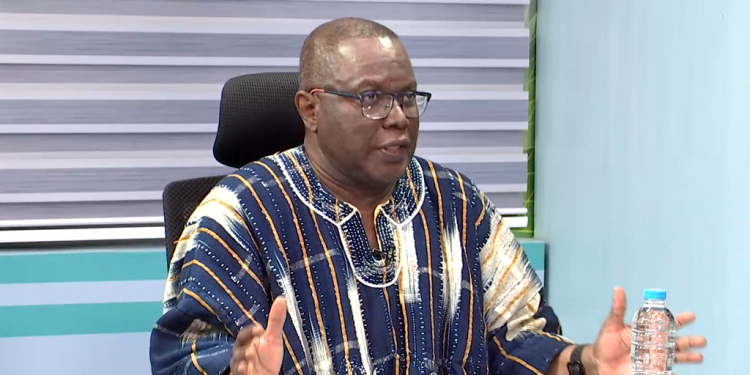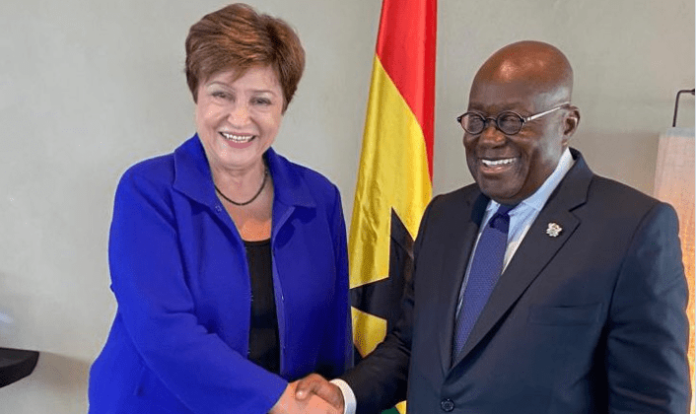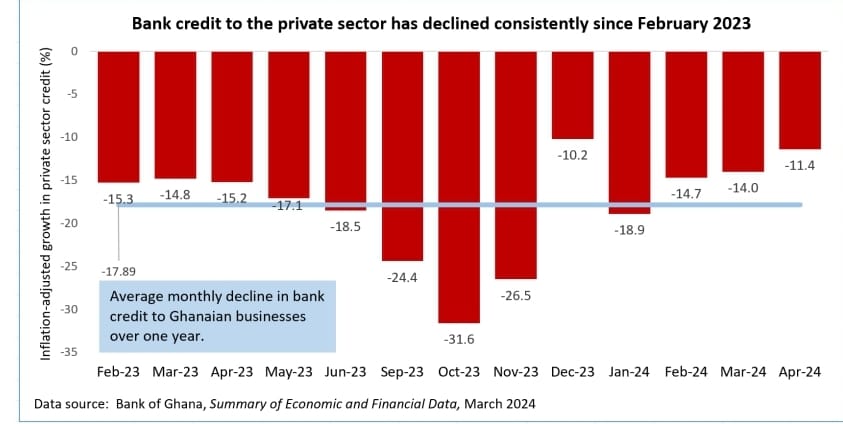The International Monetary Fund’s (IMF) programme meant to take the edge off Ghana’s economic challenges has rather aggravated them, Economist Dr. Nii Moi Thompson, has averred.
The nature of the agreement is currently causing more harm than good, according to the Economist, projecting a return to the Bretton Wood Institution moments after exiting the current programme.
According to him, the structure of the bailout has rather plunged the nation into more messier situation, worsening the crisis that necessitated the need for the programme.
He is certain the nation will be having its 18th and a possible 19th programme because the current one has been structured to place Ghana into a vicious cycle of repeated bailouts.

“I think we’re in a very dark spot, and everybody knows that I’m just restating it. Perhaps there’s a third dimension that we don’t talk about, which is what I call the third crisis, we can get into that later, the brain drain that is happening as a result of the economic crisis we’re facing now, the debt crisis, the economic crisis.
“And the fact that what is supposed to be the solution to this crisis is actually aggravating the problem. And I’m referring to the IMF programme. It almost certainly makes things worse. So, we will exit the programme, yes, but we will almost immediately re-enter. The programme looks like it’s actually designed to lead us to the 18th one, possibly the 19th, and so on. It’s not helpful at all, it’s doing more harm than good,” he told Accra-based Channel One TV.
Dr. Thompson criticised the government for punishing citizens by imposing higher taxes and interest rates on businesses and consumers as a result of its economic mismanagement.
The former Director General of the National Development Planning Commission (NDPC) pointed out certain sectors that the IMF programme has impacted negatively.
“I could just give you a couple of examples, the issue of the private sector, let’s step back and look at the moral basis of the programme itself. Why someone else will screw up the economy, that’s the government, those in charge of the micro economy, fiscal policy, and monetary policy, they messed it up.
“And then for some reason, they decided to punish businesses and consumers, who had nothing to do with that, through high taxes, high interest rates and so forth and so on. And now you see the debilitating effects on the business sector,” he pointed out.
With the significant decline in real credit availability, Dr. Economist was skeptical about the government’s ability to achieve inclusive growth, whilst questioning its strategy for promoting equitable economic growth.
“For the past 14 straight months, real credit, inflation adjust to credit to the private sector has been declining, an average of 18% per month. This is not the solution, 18% per month, the lowest I think is 10% and the highest is 30%. So, we’re sucking the blood out of the private sector, at the same time, we’re claiming that we’re preparing it to lead to inclusive growth after the programme. That’s not going to work,” he projected.
The concerns raised by the former NDPC Director General had already been relayed by the Trades Union Congress who told the President that his IMF programme has not solved the problems of Ghanaian businesses.












